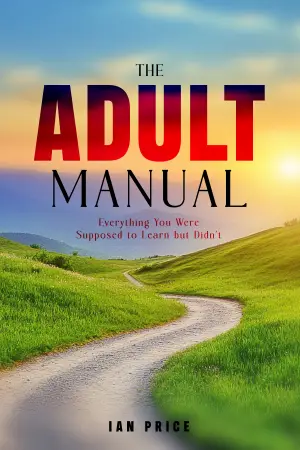I recently finished The Heaven & Earth Grocery Store by James McBride, a book that captured my heart and imagination in ways many novels aspire to but seldom achieve. As a lover of literary fiction that intertwines deep cultural threads, I was immediately drawn to McBride’s storytelling after hearing about the historical context and the multi-faceted characters residing in the neighborhood of Chicken Hill—a fictional depiction of a mid-20th-century Pottstown, Pennsylvania, where immigrant Jews and African Americans shared lives and dreams.
The novel is woven around the discovery of a skeleton in a well in 1972, hinting at the buried secrets of Chicken Hill. When I began reading, I felt the weight of history pressing down from the very first pages. McBride’s narrative had a rhythm that reminded me of jazz—fluid and spontaneous, yet deliberate and thoughtful—so it’s no surprise to learn that he’s also an accomplished musician. The writing resonated deeply, creating vivid images and relationships that feel incredibly real.
One of the standout elements for me was the character development. McBride introduces a delightful ensemble cast, from Chona, the formidable grocery store owner with a heart of gold, to Nate, the unsung hero of the Black community. Their lives intertwine through myriad subplots, revealing the kindness, resilience, and complexity of a community grappling with the harsh realities of race and societal expectations. It was heart-wrenching to see how these characters navigated their lives on the margins of white, Christian America, sometimes in harmony, often in struggle.
The emotional depth of The Heaven & Earth Grocery Store cannot be overstated. I found myself laughing, crying, and reflecting on love and community. As reviewer switterbug/Betsey Van Horn beautifully articulated, McBride’s ability to honor humanity shines through in every character and scene. However, it’s worth noting that several readers have pointed out the slow pacing and extensive character introductions at the beginning. While I can agree that the story took its time to unfold, I ultimately found this to be a deliberate choice that deepened my investment in the characters and their journeys.
On the downside, I did feel that certain storylines were left hanging, echoing critiques from readers such as Gemenii, who expressed disappointment at not getting closure for every character. While I sympathize with that sentiment, I believe this lack of resolution mirrors real life, where not every story has a tidy ending. It adds layers of realism to McBride’s narrative, forcing us to confront the messy nature of existence and the unresolved tensions within communities.
Additionally, the sheer number of colorful and distinct characters may overwhelm some readers. As C.F. Jacobson noted, while the beginning can feel sluggish due to numerous introductions, the plot ultimately tightens and delivers a powerful conclusion that certainly rewards patience. Personally, I loved the gradual unfolding of each character, as it allowed me to appreciate their quirks and complexities.
In conclusion, The Heaven & Earth Grocery Store is a beautiful tapestry of love, loss, and communal resilience, all told through the lens of a diverse neighborhood teeming with life. The enchanting prose, coupled with profound themes of race, religion, and humanity, left me with a sense of hope and a desire to see the world differently. I wholeheartedly recommend this book to anyone willing to engage with its rich narrative and complex characters. If you have a penchant for stories that explore the depths of the human experience, this novel will undoubtedly resonate and linger in your thoughts long after you’ve turned the last page.








